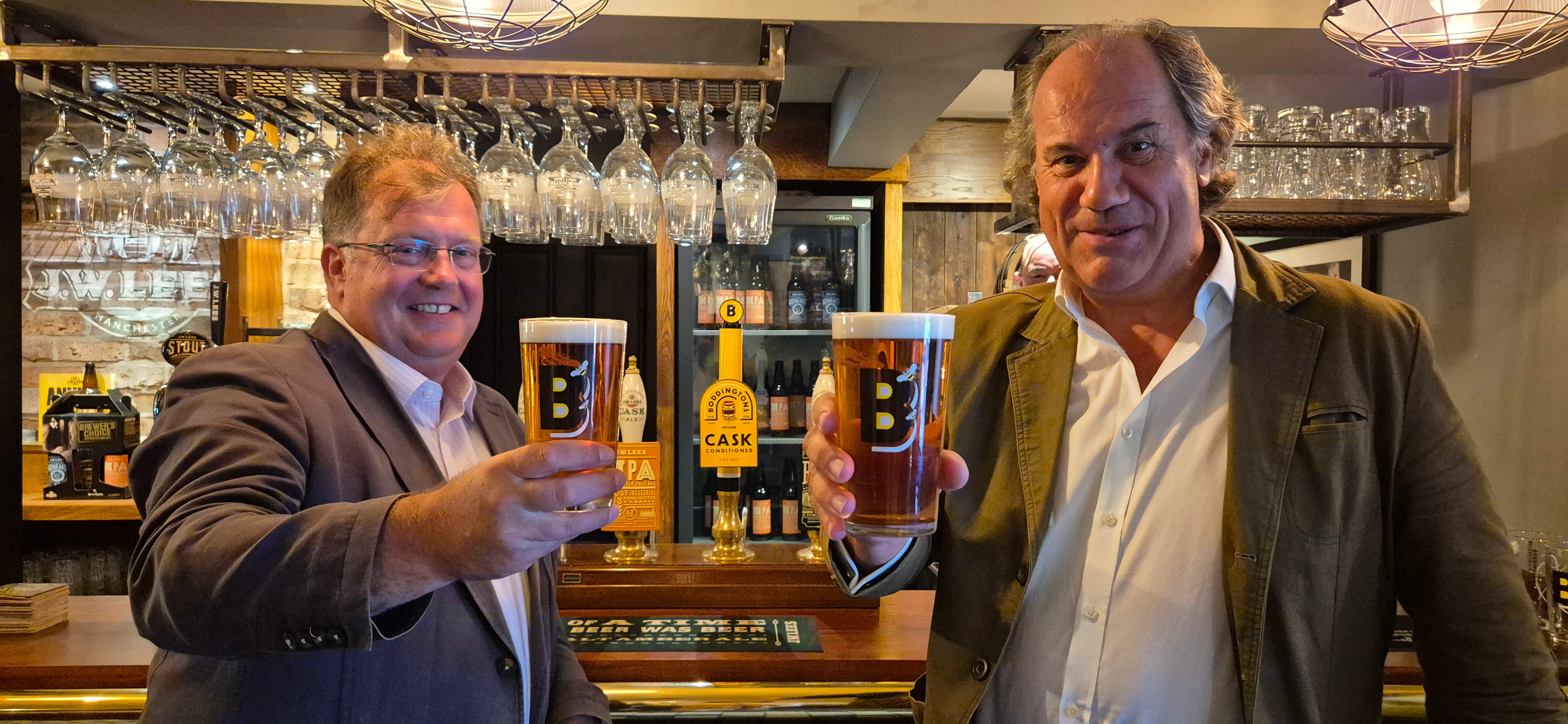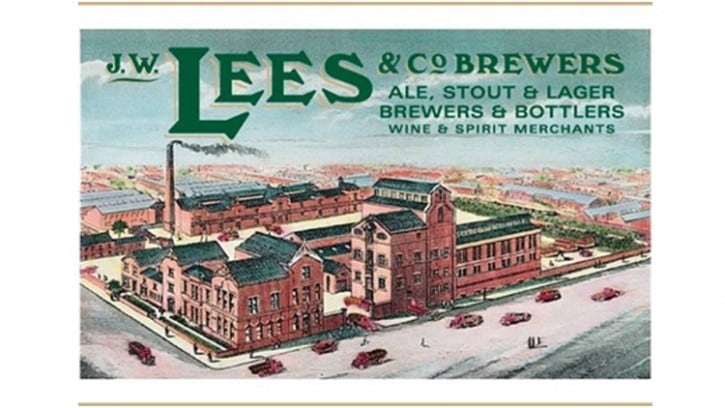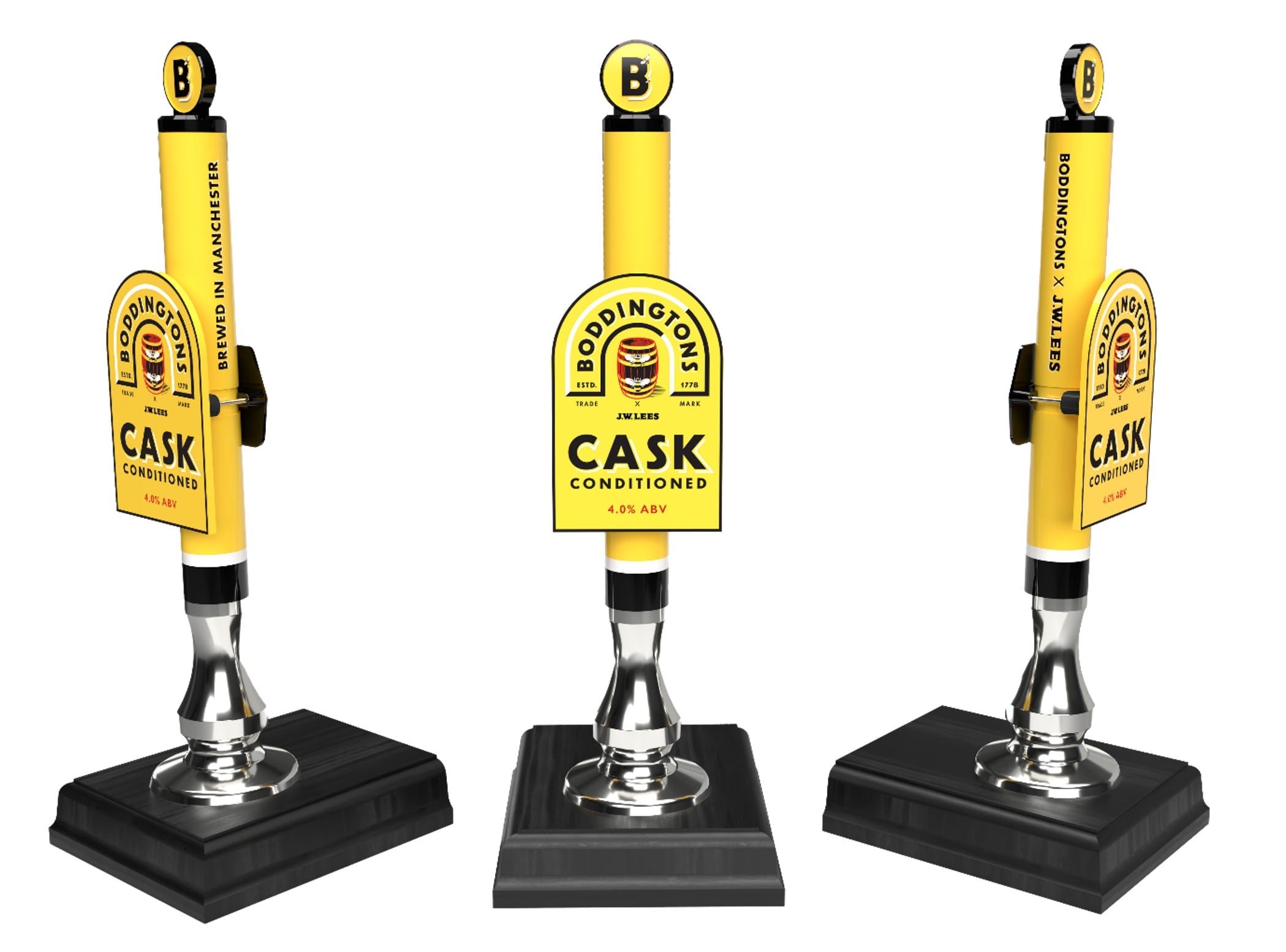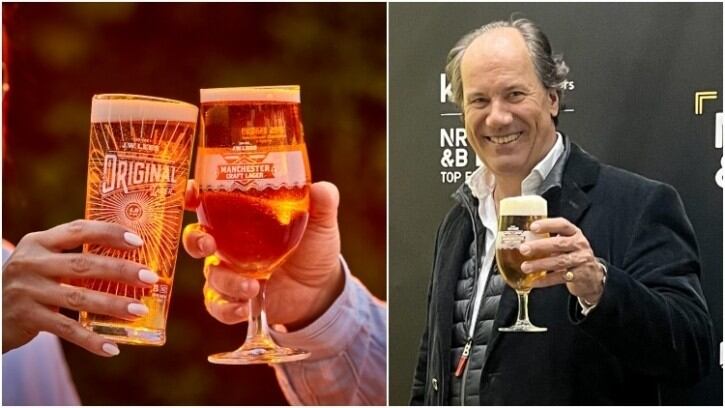Alongside a couple of fairly well-known football teams, the summer of 2025 has seen the resurgence of Oasis on the music front. Alongside these jewels in Manchester’s cultural crown, William Lees-Jones firmly believes, sits the Boddingtons beer brand.
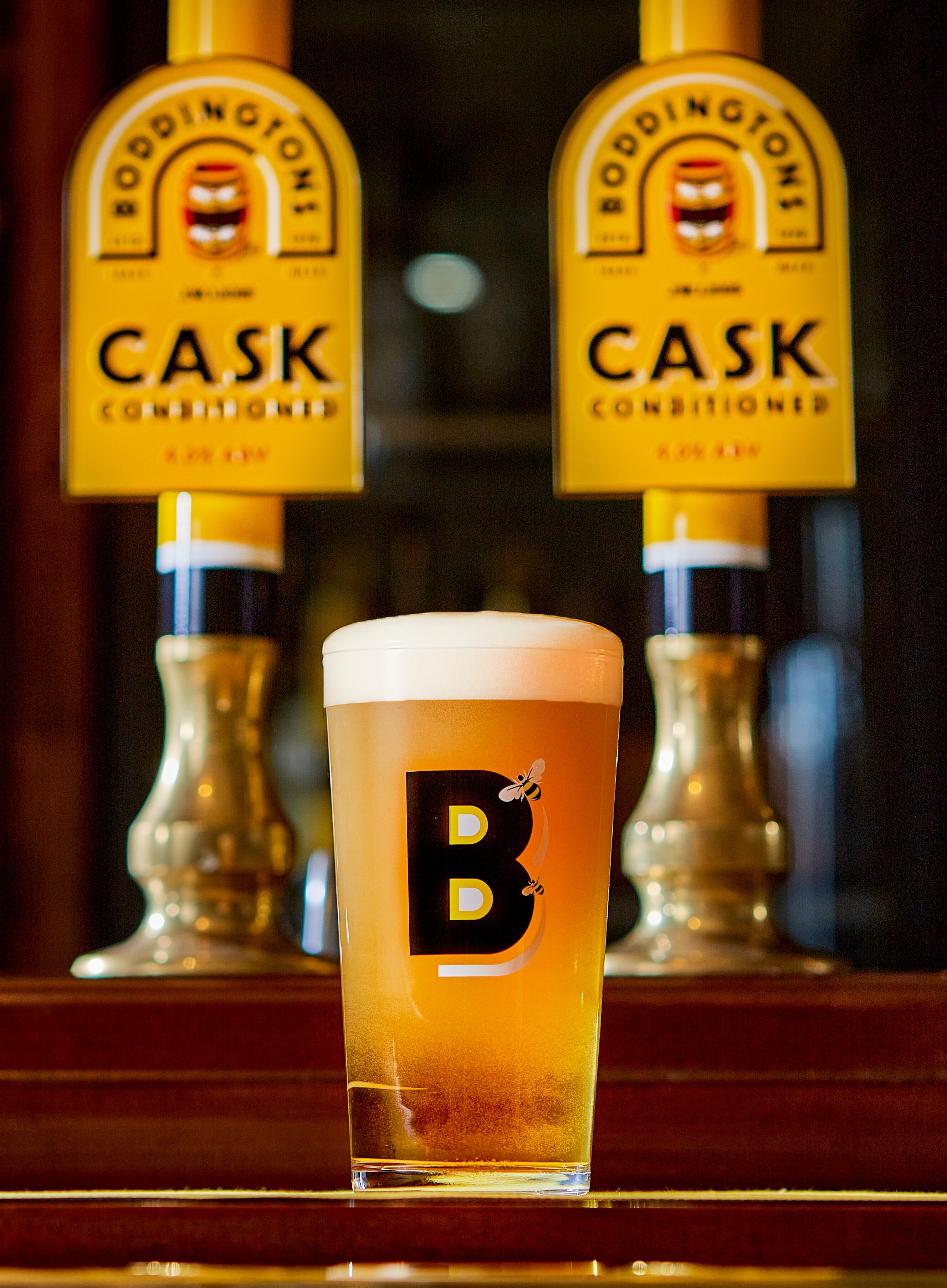
“I was lucky enough to be at the Saturday night Oasis gig in Heaton Park,” says William, where he saw a new generation singing along to band’s back catalogue alongside their parents, “and there’s now this incredible fondness for things from the 1990s. At certain times, people go back to brands they feel comfortable with, and Boddingtons is up there alongside Oasis as far as Manchester is concerned”.
That would seem a strange position for the managing director of family brewer and pub operator JW Lees to take. The beer widely known as “Boddies”, was once a bitter rival - in more ways than one - to JW Lees own cask ales. However, Boddies is back, and is being brewed at JW Lees’ Greengate Brewery.
In one sense, the rise and fall of Boddingtons was swift. From actress Melanie Sykes muttering “by ‘eck” as she sipped a pint of the beer dubbed the Cream of Manchester in a 1990s TV ad, to the demolition of the beer’s home, the Strangeways brewery in 2007, was little more than a decade.
Boddingtons is a way for us to build a national free trade business.
William Lees-Jones
The full Boddingtons story is much longer, of course. Henry Boddington became a partner in the Strangeways Brewery in the 1840s and under several generations of the Boddington family the business built up an estate of around 500 pubs in the north west, alongside the brewing arm.
Whitbread acquired the beer business in 1989, while the pubs transferred into a separate company. Whitbread put the investment behind Boddingtons that transformed it from a regional beer into a national ale brand.
Alongside the popular ad campaign, Boddingtons was the second beer, after Guinness, and the first ale, to put the ‘widget’ into its cans, delivering a shot of nitrogen that led to a smooth, creamy pour.
New recipe
However, in the fallout from the Beer Orders, Whitbread’s brewing operations became part of Interbrew, and ultimately AB InBev. The Strangeways Brewery closed in 2004, with the town centre site sold for redevelopment.
Boddingtons has survived as a keg and canned brand, with a 3.4% ABV liquid brewed for both by AB InBev’s UK arm, Budweiser Brewing Group, However, the last pint of Boddies cask was poured in 2012. Until now.
“Budweiser Brewing Group came to us to ask if we could brew Boddingtons on cask,” says William. “They’re an amazing company, with a global portfolio of 500 brands, but they fully acknowledge they’re not a cask ale brewer.”
For JW Lees, the opportunity with Boddingtons is not in its own 150 managed and leased pubs. Boddingtons Cask Ale will launch during Cask Ale Week in the JW Lees’ flagship Founders Hall, but, says William, ”people come into a JW Lees pub for a pint of JW Lees beer, Boddingtons is a way for us to build a national free trade business.”
It looks like a proper Northern pint.
Michael Lees-Jones
The task of recreating Boddingtons in cask fell to the brewing team led by Michael Lees-Jones, production director. Boddingtons Cask Ale is being relaunched at 4% ABV, “it’s more premium, slightly stronger than it used to be on cask,” says Michael.
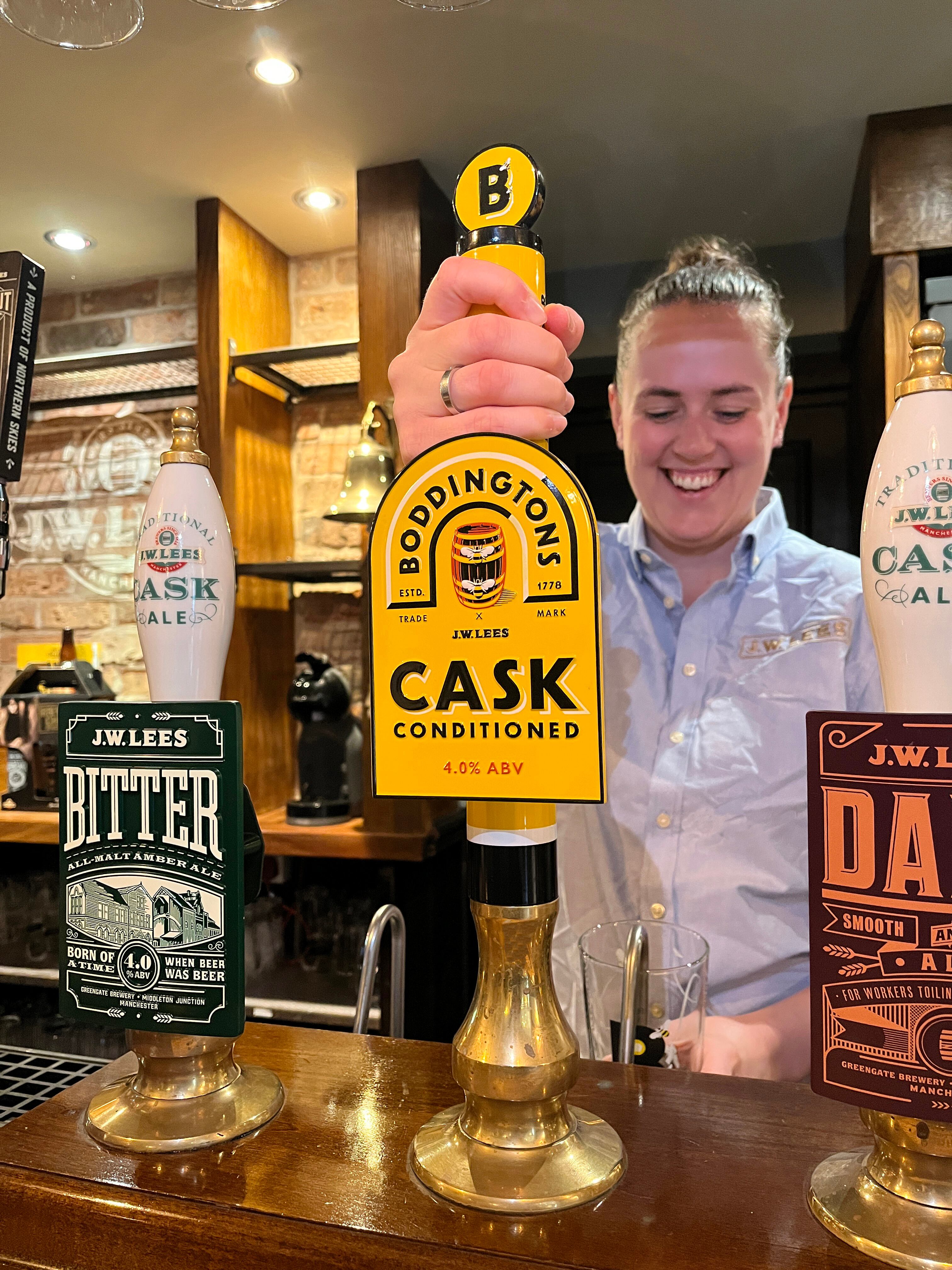
Recreating a beer that inspires such passion has been a challenge. Michael adds: “Nobody’s drunk cask Boddingtons since 2012 and one problem is that different people will often remember it very differently. We’ve got old tasting notes and recipes, and both analytically, and anecdotally from talking to people who drank it, I think we’ve hit the nail on the head.
“When I was a student, Boddies was the go-to beer. I think ours is very similar. It looks exactly as it should. The golden colour is right, it’s got the tight, thick creamy head. It looks like a proper Northern pint, and it’s got the grapefruit aromas, the caramel notes, and the long, cleansing bitterness that set Boddingtons on cask apart.”
The new recipe uses all Britsh ingredients, including Goldings and Jester hops. Michael also cites the creamy mouthfeel, now mainly associated with Guinness, as “something that many bitters, especially from our part of the world, traditionally had. It’s a big part of what brings people back for another sip and another pint.”
Drinker feedback
Facing a roomful of potentially his sternest critics, representatives of Greater Manchester’s very active CAMRA branches, Michael is relieved the new beer is given a positive, if suitably Mancunian, reception. “It’s really all right,” says one guest.
Alongside the different recipe and higher ABV, further clear blue water is being put between Boddingtons Cask Ale and the keg version. The new straight pint cask glass is different to the standard Boddingtons tulip keg glass. It features a prominent capital B and the music collaboration-inspired catchline “Boddingtons X JW Lees”, which also appears on the new cask font.
Alongside veteran Boddies drinkers, William and Michael expect the beer to have an appeal to a new generation of beer drinkers, many of them the same youngsters who are now appropriating their parents’ old Oasis CDs.
“For many 20 to 25-year-olds, cask ale is where they are in terms of it being a fresh natural product. Craft beer was great, but there’s now some fatigue,” believes William.
Brewing Boddingtons is a trophy for us and an opportunity.
William Lees-Jones
The initial sales push has seen most of Manchester’s top cask ale pubs place orders. “We’ve had more than a 50% take-up from sales cold calls, which is unheard of. Our target market is the independent free trade who want to put Boddingtons on the bar as a permanent beer, not a guest.” Pub groups and bar chains will follow, with plans to expand from the north-west to a national roll out.
Given the long history - and rivalries – of Manchester’s brewing families, William acknowledges that brewing Boddingtons, “is a trophy for us, and an opportunity.”
While the terms of the deal, including its duration, have not been revealed “we have a close relationship with Budweiser. In our pubs, we have their brands San Miguel on the bar and Corona in our fridges. For us, Boddingtons is a borrowed brand, but this is a long-term deal. There’s no reason why we shouldn’t still be brewing it in 20 years’ time.”
By ‘eck, that’s quite a pledge.

